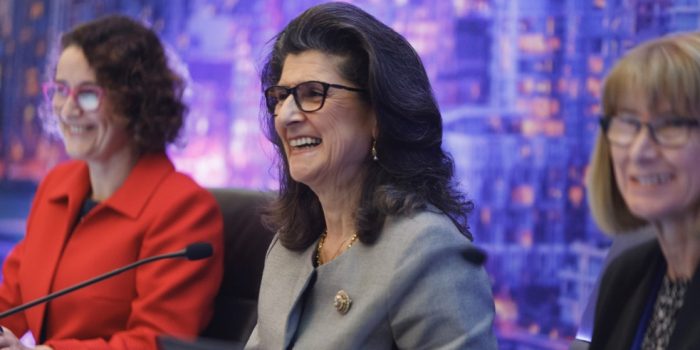After a long career at Swedac, Merih Malmqvist Nilsson now retires. It also means that she leaves her position as Chair of ILAC, the global organisation for accreditation bodies in the fields of laboratory and inspection body accreditation. We asked Merih Malmqvist Nilsson, who has been in ILAC’s executive committee since 2003, about her time at ILAC’s executive committee, the organisation’s state of affairs and about her plans for the future.
What has been ILAC’s greatest accomplishmentsduring your time in the organisation?
– The first important achievement for ILAC came when we started formally cooperating with global organisations such as OIML, BIPM, ISO, IEC, ITU, WADA and many others. The next important achievement came when we realised that we could serve regulators and understood the degree to which our services could support free trade without technical barriers. We know today that our vision of “accredited, tested, inspected once; accepted everywhere” can be more than just a vision. We can make it a global reality.
Finally, we have developed a process of actively serving the whole market through communication and marketing activities, seminars and participation in global events.
Why do we need an organisation like ILAC?
– Today, the value chain is global, even in cases where the value added comes from local businesses. In this climate, it is important to have global cooperations or organisations that can represent the various components of the value chain. It is also becoming increasingly important for the global cooperation organisations to speak to each other to resolve any problems encountered. ILAC and IAF represent accreditation bodies and their stakeholders. Together they give accreditation a voice in the global arena. The presence of ILAC and IAF in the global quality infrastructure is an essential part of achieving the goals of free trade without technical barriers and the sustainable development goals.
What are the main challenges lying ahead in the long and the short term for ILAC?
– The biggest challenge for the whole quality infrastructure community, not only for ILAC, is to adapt to changes and reinvent itself in order to remain relevant 5-10 years down the line. If the present services of ILAC members do not meet the needs of the market, the market will create its own processes to meet its needs and we shall all become irrelevant. This goes for the whole quality infrastructure community. The further away from the level where goods and services are delivered, the bigger the challenge for this community to understand what is required of it.
ILAC as one of the top-level organisations in the conformity assessment chain has to take full responsibility for listening to all stakeholders, understanding their needs and changing its services and its culture to be able to embrace these challenges and changes. There are a multitude of challenges, such as the global character of the value chain, the sustainable development goals, the internet of things, digitalisation in general and, last but not least, the pace at which innovations eradicate traditional services and products.
What will you do now in your retirement?
– I have a bucket list of hobbies and things I have been wishing to do, languages to brush up, a lot of refurbishing that needs doing in the house. I look forward to seeing family and friends without having to consult my diary several months in advance. In short, I shall not have difficulties doing meaningful things and sometimes ad-hoc. Isn’t that what freedom is all about? At another level, I am not actively going to look for any professional challenges but I am going to be open for suggestions for at least a couple of years to come. The rest is written in the stars.
Will you take on another international position?
– The global arena has been my playing field for many years. It is where I find the biggest intellectual and cultural challenges and personal rewards. If the opportunity comes up, I shall seriously consider it.

